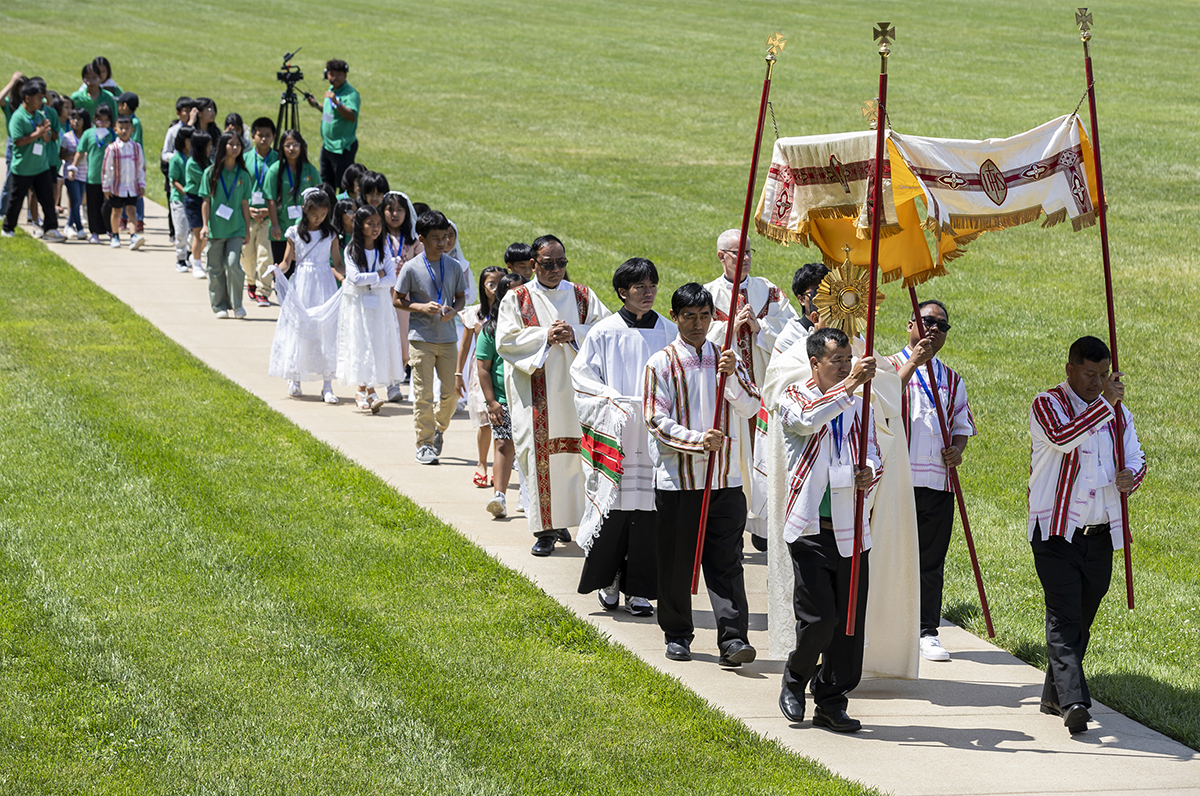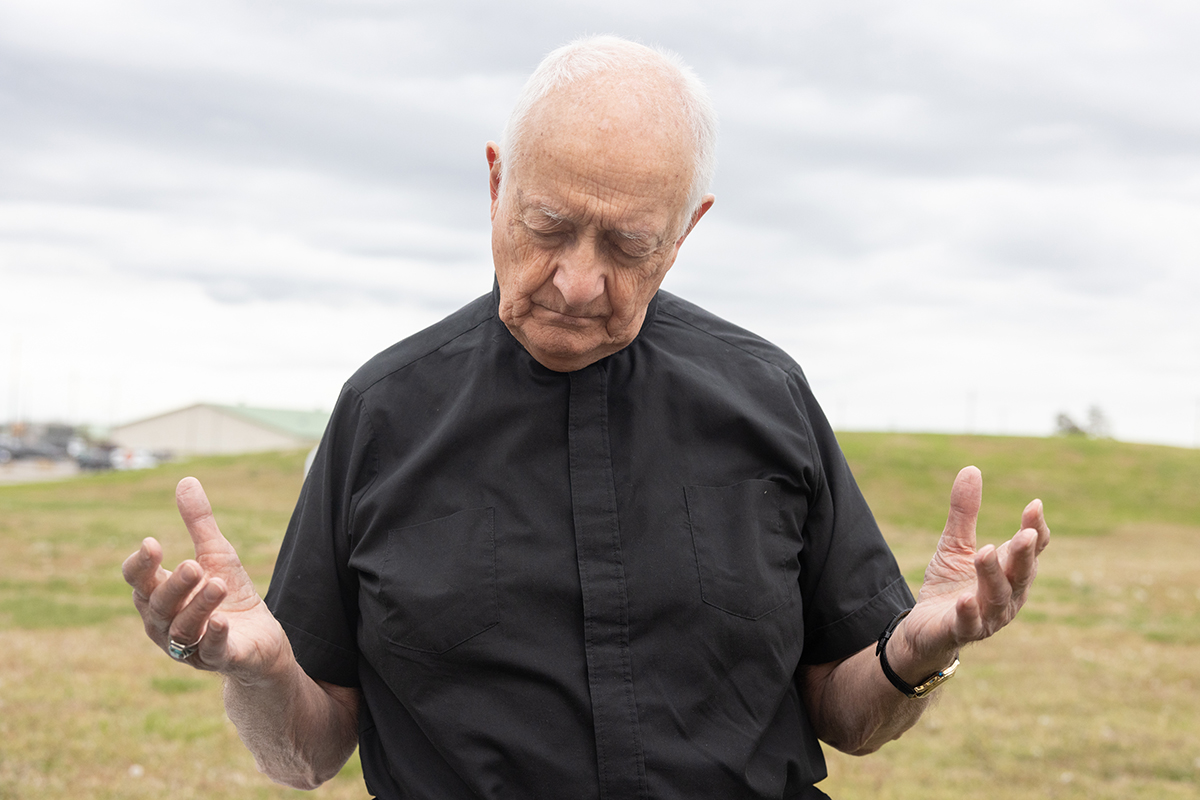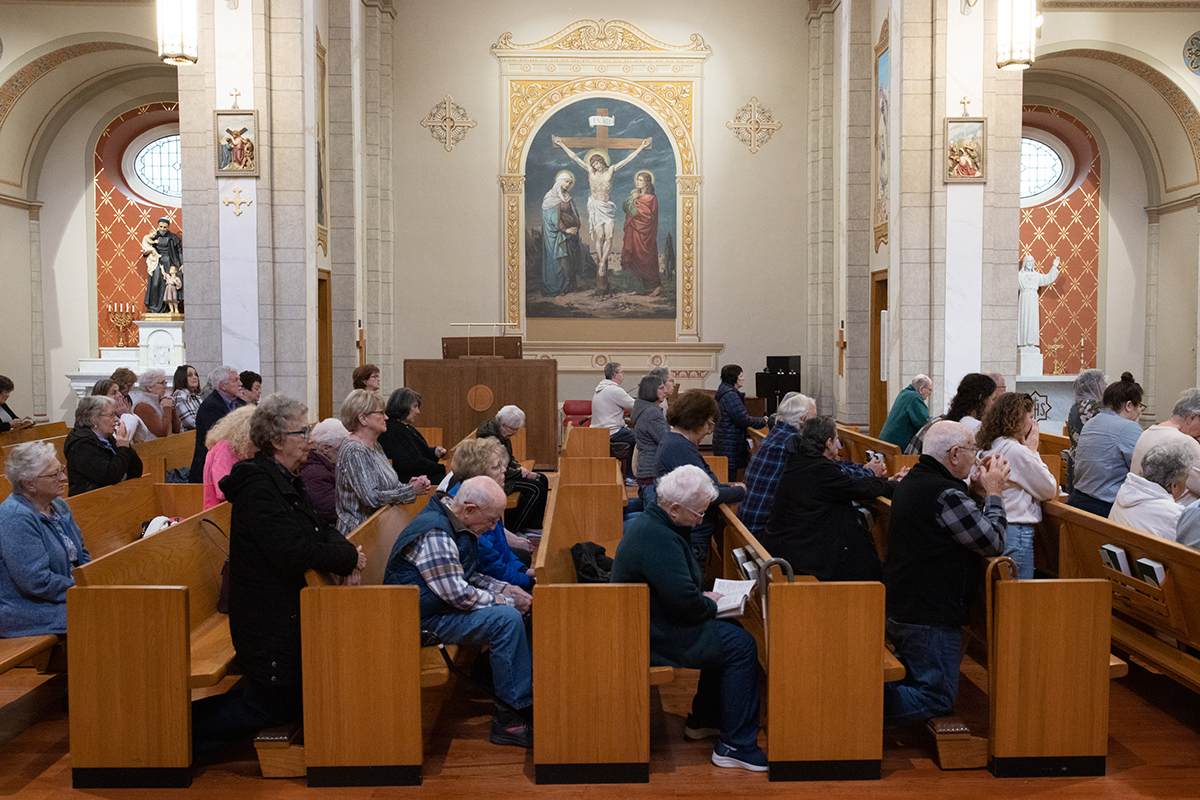Program aims to ensure protection for children
From March 2007:
“It’s all about protecting children.”
Terry Edelmann, director of the Safe Environment Program, summed up the purpose of her office, begun last summer on the recommendation of the archdiocesan Child Safety Committee.
That office, which oversees all issues relating to child safety and protection in the St. Louis Archdiocese, carries out the mandate of the U.S. bishops’ 2002 Charter for the Protection of Children and Young People.
Edelmann, former community relations director for the Catholic Education Office, is assisted by Mary Schnoring, coordinator of compliance, and Andrea Witt, coordinator of training.
“Since 2002, following the bishops’ response to the revelations of the child sex abuse scandal in the Church, all dioceses are committed to following the requirements of the bishops’ charter,” Edelmann
explained.
“We are making sure that everyone who comes into contact with a child, from the priest to the part-time volunteer, must be in compliance,” she said.
Msgr. Richard Stika, episcopal vicar for the Office for Child and Youth Protection, said, “Everyone from the archbishop down has gone through this program, including me.”
Msgr. Stika added, “I think it’s vital that people feel at home in our parishes, and they know that the archdiocese is doing everything it can to protect children and that anyone who has anything to do with children is someone we can trust.”
The Safe Environment Program, or SEP, has three components: an educational or training component called Protecting God’s Children, required background checks and a Code of Ethical Conduct. In addition there is the Safe Touch Program, directed at children, to help them learn what is appropriate behavior by others and what is not.
Prior to formation of the Safe Environment Program, initial response to the bishops’ charter was developed by Tom Lemp, a director with Catholic Family Services.
Lemp set up Protecting God’s Children and started the background checks. He and CFS staffer Saundra Barker wrote the Safe Touch pilot program used last year in the archdiocese.
“The bishops said these kinds of programs had to be established,” Lemp said. “Initially the program was set up through the Child Safety Committee, which addressed things like school bullying and school safety. But in the wake of these scandals the committee also took on this task.”
The bishops also require that each diocese go through a regular audit to make sure it is in compliance with charter requirements. “This archdiocese has been in compliance with every audit since 2003,” Lemp said.
“Protecting God’s Children is a required one-time workshop of less than three hours for everyone who works with or near children in the archdiocese,”
Edelmann said. The workshops are offered at no cost at different locations throughout the year.
“Currently we are using professional clinicians, counselors and therapists as trainers leading the workshops. This summer we will start training our own trainers, more than 50 volunteers from around the archdiocese.”
Sometimes people balk at attending a class, Edelmann said, citing long experiences volunteering with the parish school, athletic program or Scouts. But afterward most people are glad they came, she said.
Edelmann provided quotes from evaluations by people who attended the training: “All parents, teachers, all employees, volunteers need to attend this.” “Gives me a solid base to understand the problem.” “Helps me as a parent and as a parent volunteering at my parish.”
Lemp said all organizations have training programs for employees and volunteers. “This is about setting up a system for our volunteers and employees to educate them on behavioral practices and boundaries in dealing with children. This is all about protecting children. It’s not about inconveniencing people or making folks mad.”
Edelmann said, “The workshop heightens your sensitivity to being aware of things that just don’t look ‘right.’ And it helps adults to understand that their own innocent behavior may be or appear inappropriate.”
Protecting God’s Children workshops are for everyone, Edelmann stressed. “To date we’ve had 62,000 people go through it.”
Lemp added, “Both Cardinal (Justin) Rigali and Archbishop (Raymond) Burke have been through this training. It’s for everybody, even archbishops. I think people need to know that.”
The second component of the bishops’ mandate is background checks. Each parish must have a child safety coordinator who collects data for the required background checks of everyone working with or near children.
Msgr. Stika, who praised the SEP office for its work, said, “The one group that as a pastor and episcopal vicar of children and youth I am most grateful for are the parish safety coordinators. They have the difficult job of ensuring that everyone involved with children in our parishes is part of the environment of trust.”
Schnoring, the SEP compliance coordinator, is a retired teacher and former child safety coordinator at Holy Infant Parish in Ballwin. Now she goes out to parishes to help others in that job.
“I answer questions, I help out. We give assistance as needed and are happy to do it,” Schnoring said.
The background checks involve providing what Edelmann called “information similar to what you provide to get a credit card.”
That includes a copy of a person’s Social Security card or a driver’s license with the Social Security number on it. Sometimes people object to providing that information, citing identity theft concerns, but most understand the need for it, Schnoring said.
That information is then sent to the Missouri Family Care Safety Registry, part of the state Department of Health and Senior Services, which does the background check. The background check is updated every other year.
“At first people balked, I know because of the Social Security number,” said Debby Schaefer, child safety coordinator at Epiphany of Our Lord Parish in South St. Louis. “But they realize it goes nowhere but to the state.
Once people understood that everything was fine.”
Margie Eckert, child safety coordinator at Incarnate Word Parish in Chesterfield, said, “I believe people understand why this is necessary. They used to take it almost like an insult, but now people realize that everybody has to go through this.”
“It’s all worth it if it saves one child,” Schnoring said.
Managing the parish’s data base of background information is a lot of work for the child safety coordinators, Edelmann said, as well as for SEP. “But no one would want their child in a program that has no background check,” Edelmann said.
The third SESP requirement is to read and sign the archdiocesan Code of Ethical Conduct, which specifies appropriate behavior and the consequences of inappropriate behavior.
The latest addition, the Safe Touch program, recently was approved by Bishop Robert Hermann, vicar for education. Safe Touch, which is overseen by SEP, is an annual program for children to help them determine if someone else’s behavior is appropriate. It was written by West County Psychological Associates.
“The Safe Touch program is about 45 minutes long, age appropriate, and will start this spring,” Edelmann said. “I would advise parents to view the curriculum, which will be available for them, if they have any concerns.”
Edelmann repeated “All this is to protect children. We know that predators seek out children, and we are doing all we can to protect them. We have 100,000 kids in our care. How naive would we be if we weren’t aware of the possible dangers?”






